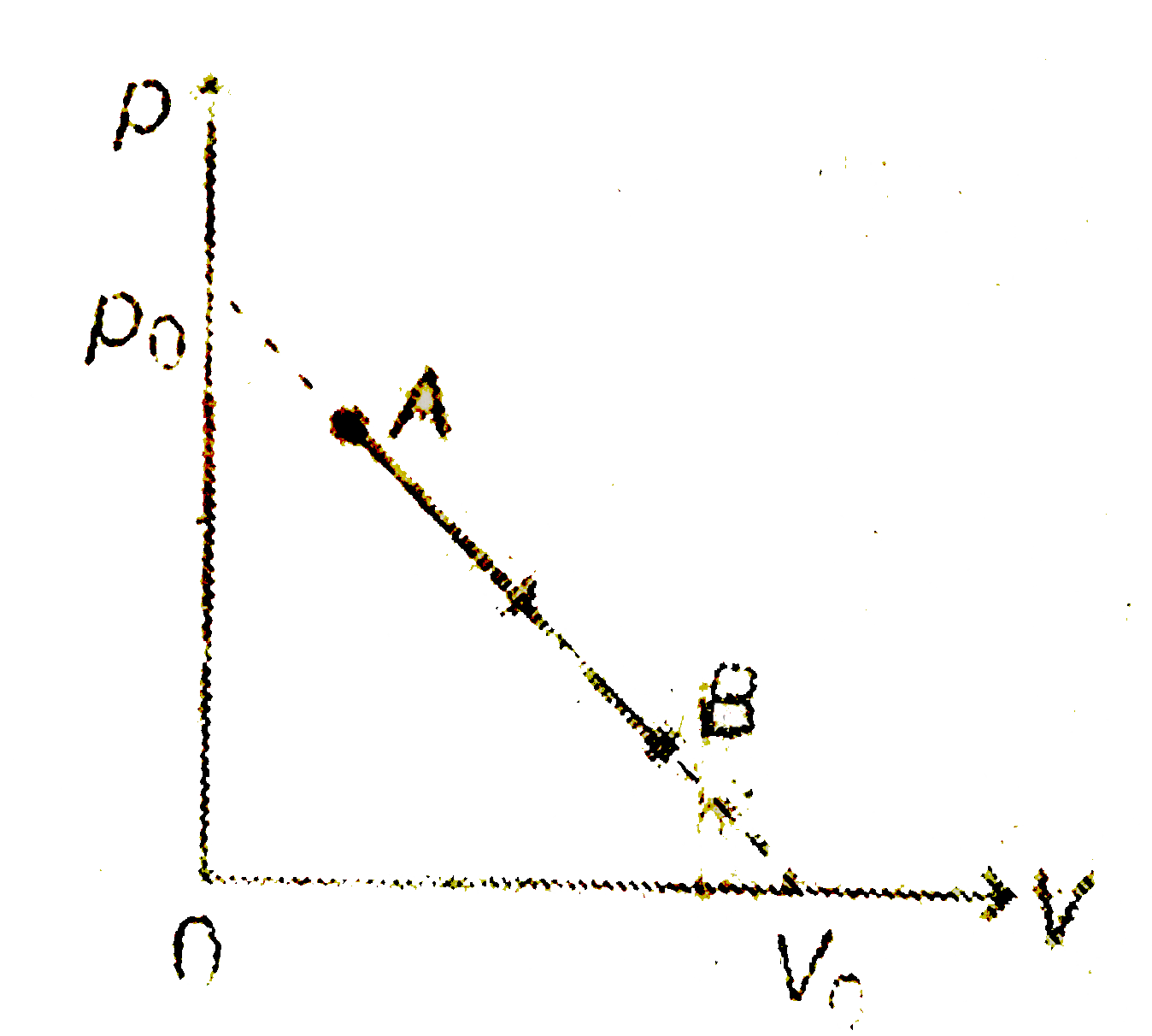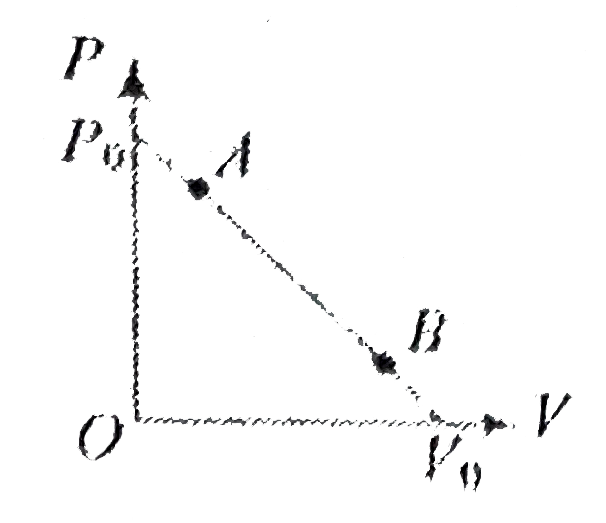A gas undergoes a process in which its pressure P and volume V are related as VP = constant. The bulk modulus of gas for this process
P/n
n2P
P
P1n
To find the bulk modulus of a gas undergoing a process where the pressure P and volume V are related by the equation PV=constant, we can follow these steps:
Step 1: Understand the relationship
Given that PV=k (where k is a constant), we can express this relationship in terms of differential changes.
Step 2: Differentiate the equation
Differentiating both sides of PV=k with respect to volume V:
PdV+VdP=0
This implies:
VdP=−PdV
Step 3: Rearranging the equation
Now, we can rearrange the equation to find the relationship between dP and dV:
dPdV=−PV
Step 4: Define the bulk modulus
The bulk modulus B is defined as:
B=−dPdV⋅VV
Substituting the expression we found for dPdV:
B=−(−PV)⋅1=PV
Step 5: Conclusion
Thus, the bulk modulus B for the gas undergoing this process is:
B=PV
Final Answer
The bulk modulus of the gas for this process is PV.
---
Given that PV=k (where k is a constant), we can express this relationship in terms of differential changes.
Differentiating both sides of PV=k with respect to volume V:
PdV+VdP=0
This implies:
VdP=−PdV
Now, we can rearrange the equation to find the relationship between dP and dV:
dPdV=−PV
The bulk modulus B is defined as:
B=−dPdV⋅VV
Substituting the expression we found for dPdV:
B=−(−PV)⋅1=PV
Thus, the bulk modulus B for the gas undergoing this process is:
B=PV
The bulk modulus of the gas for this process is PV.
Topper's Solved these Questions
Similar Questions
An ideal gas undergoes a process in which its pressure and volume are related as PVn=constant,where n is a constant.The molar heat capacity for the gas in this process will be zero if
View SolutionAn Ideal gas under goes a process in which P and V obey pV= constant Bulk modulus of the gas in the process is P/x^n .Find the value of n
View Solution
Knowledge Check
A gas undergoes a process in which its pressure P and volume V are related as VPn= constant. The bulk modulus of the gas in the process is:
AnPBP1/nCP/nDPnA gas undergoes a process in which its pressure p and volume V are related as Vnp = constant.The bulk modulus of the gas in this pressure is
Ap1/nBpnCnpDρnA gas undergoes a process in which its pressure P and volume V are related as VPn= constant. The bulk modulus of the gas in the process is:
AnPBP1/nCP/nDPn
A monoatomic gas undergoes a process in which the pressure (P) and the volume (V) of the gas are related as PV−3=constant. What will be the molar heat capacity of gas for this process?
View SolutionWhen a polyatomic gas undergoes an adiabatic process, its tempertaure and volume are related by the equation TVn= constant, the value of nwill be
View SolutionOne mole of an ideal monotomic gas undergoes a linear process from A to B in which its pressure p and its volume V change as shown in figure.

The absolute temperature T versus volume V for the given process is
View SolutionOne mole of an ideal monatomic gas undergoes a linear process from A to B , in which is pressure P and its volume V change as shown in figure .

The absolute temperature T versus volume V for the given process is
View SolutionAn ideal gas (γ=1.5) undergoes a thermodynamic process in which the temperature and pressure of the gas are related as T−1P2= constant. The molar heat capacity of the gas during the process is
View Solution
